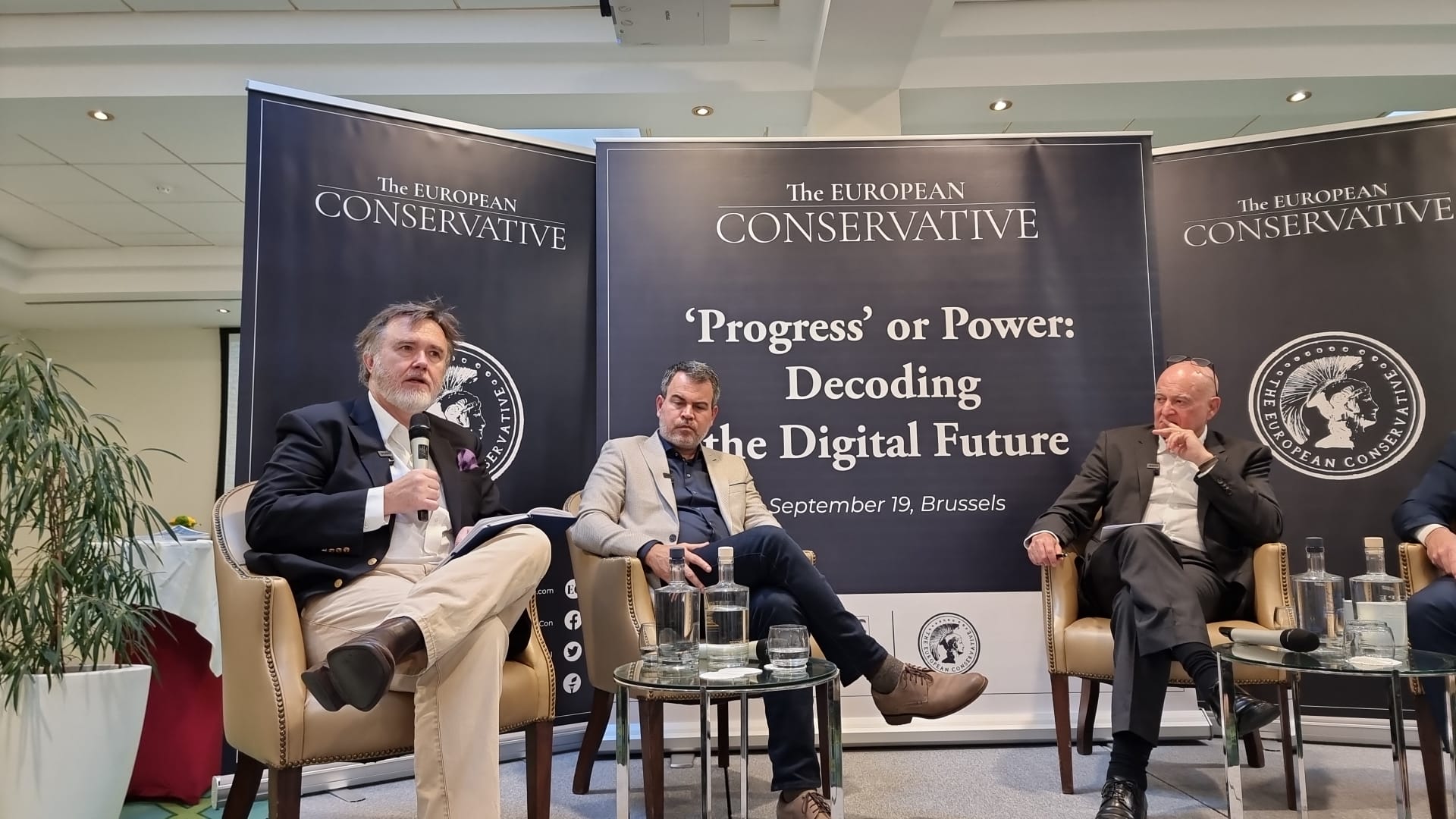
Two camps emerged at this week’s conference on “‘Progress’ or Power: Decoding the Digital Future,” hosted by The European Conservative in the centre of Brussels—tech optimists and tech pessimists. These groups were distinct, but linked by an underlying commonality: an interest in what is best not for technology but for humanity. From this foundation, the speakers raised and examined fears surrounding the digital explosion in the EU and beyond, and considered new questions which conservatives ought now to be focussing on.
We began our "Progress or Power: Decoding the Digital Future" event, with a first panel on Culture, which includes @roddreher, @mlukacs, and @Norm_Lewis, moderated by @CarlosPerona13.
— The European Conservative (@EuroConOfficial) September 19, 2023
Stay tuned while we decipher the dichotomy of the digital future in the EU and beyond! pic.twitter.com/Hfwtqx6hiC
Rod Dreher, author and columnist at The European Conservative, struck at the heart of tech pessimism when he declared that “the more and more we get integrated with digital culture, the less and less human everything seems.” He was talking about his realisation that while working from home he made plenty of online friendships, but barely knew his next-door neighbours—those he’d be far more likely to call on during an emergency.
Other examples were cited throughout the rest of the day-long conference, particularly relating to education. Professor Antonio Alonso Marcos, who is based in Madrid, raised his concern about the “abuse of technology” in schools, which avoid books the more they implement new technologies, and the damage this does to critical thinking. Sebastian Morello, senior editor at The European Conservative, added that those taught in the digital world effectively “subcontract our memory” to technology, which does all the heavy lifting, meaning the “library of information” in the mind “diminishes.” (He added that this has “obscured” the servant-master relationship between humans and technology, the latter appearing to be the more dominant.)
We begin our second panel focusing on technology's effects on education with speakers Antonio Alonso Marcus and @isasagas, moderated by Sebastian Morello. pic.twitter.com/CfHNqlv5ok
— The European Conservative (@EuroConOfficial) September 19, 2023
But is it possible that too much can be put on the shoulders of the digital transition? Norman Lewis, visiting research fellow at MCC Brussels, said it is, and urged that “we shouldn’t be Luddite about this.” If, as Lewis put it, we are fearful of technologies such as artificial intelligence diminishing our humanity, then “it is we who have failed the test, not AI that has passed.”
While Peruvian academic Miklos Lukacs said he is in the pessimistic camp because “I love being a human—and we’re losing our humanity,” Lewis argued that “techno doom-laden” thinkers should recognise that the problem is not technology but adults and how they use it. On Dreher’s online interaction anecdote, he said the problem is not that people are connecting digitally but the mediocre calibre of those interactions (sharing videos of cats and so forth). The rapid development of technologies should, he concluded, “challenge us to raise our game.” Perhaps it can also be used as an “adjunct to human consciousness.” But even where its presence is too problematic, there is still no need to worry; people can simply “turn it off.”
This, however, is much easier said than done, as a number of panellists pointed out (and as Lewis conceded). Professor Marcos limits the amount of time he spends on devices in front of his children so as to not pass down a “tech addiction.” But we all know that many others fail to think about this; the evidence is displayed daily in shops, restaurants and, of course, at schools. And after Rod Dreher was accused of going too far with certain examples of harmful technology uses, he highlighted the continued dominance of internet pornography, to point out that the regularity of these damages is not overstated.
As the debates went on, it became clearer that there was more in the way of agreement between these two camps; that the harmful aspects of technology are borne largely from the preceding deterioration of society. But then that raises more questions. For example, should we put the brakes on the growth of digital in order to prevent it from making worse the issues that originated elsewhere? And how would it be enacted, even if it was agreed upon?
Any answers will lie beyond the realm of tech alone, and will rely deeply on our wider societal structures. Norman Lewis was sure that the “wisdom of the masses” is the solution—that people will eventually come around to acting in their own interests. On personal interaction, Sebastian Morello agreed that people are now “sick of talking heads” in Zoom conversations, and wish to return to both viewing and engaging in person-to-person meetings. But whether such sentiments will reign in other—perhaps more sinister—elements of the digital world is yet to be seen.
